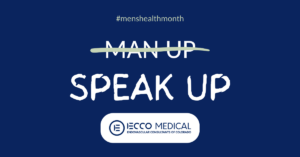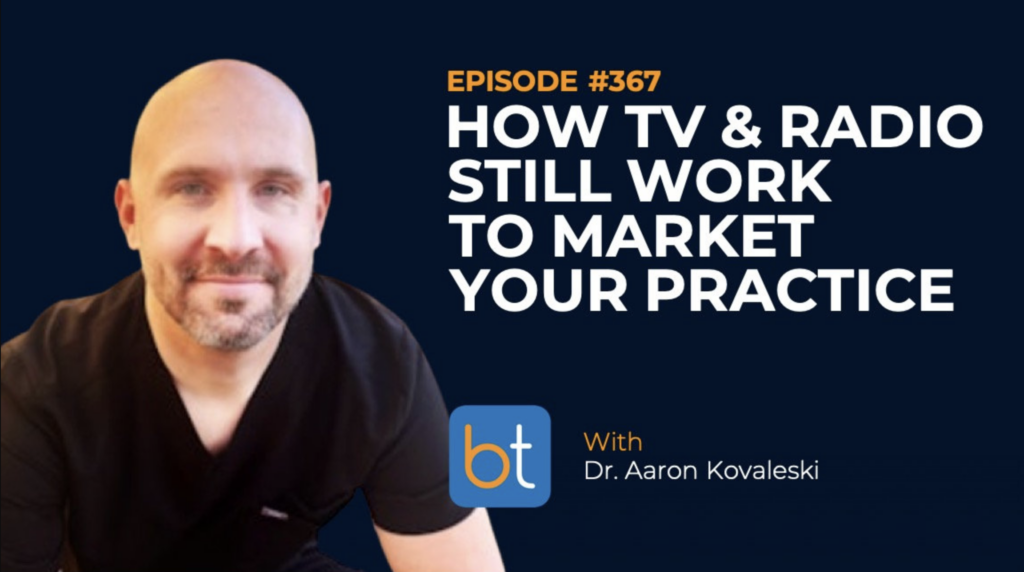It’s no secret that most men avoid the doctor at all costs. But why? Maybe because they believe that they don’t really need to go, or perhaps they’re a little bit embarrassed by the nature of their health concerns. Maybe it’s financial or an issue of time constraints.
Whatever the case may be, one thing is certain: neglecting regular check-ups and routine health screenings can have serious repercussions in the long run for men.
What Do Statistics Tell Us?
There is a lot of evidence to support this theory that most men actively avoid going to the doctor. In fact, there are numerous organizations and campaigns in existence whose sole purpose is to encourage men to seek the healthcare they need.
One such movement is the “MENtion It” campaign, which has now been hosted by the Cleveland Clinic for four years running. This campaign exists to encourage men to speak up about their health concerns – and one of the most impactful ways they do so is by performing case studies with the intent of shedding light on just how big this problem is.
Here are just a few of the surprising statistics revealed by the Cleveland Clinic:
- Nearly 72% of men said they would rather be doing household chores, like cleaning toilets, than going to the doctor.
- 65% of men said they avoid going to the doctor as long as possible.
- Only 3 out of 5 men go to the doctor for a routine check-up.
- Only 12% said that they would turn to a doctor first if they had a health issue
- 37% of men said they had withheld information from their doctors in the past, specifically because they weren’t ready to deal with the potential diagnosis that might result if they told the truth.

These statistics are heartbreaking to read when you realize just how many men could be receiving the care they need and don’t because of shame, stubbornness, fear, or flawed societal expectations.
Taking Care of Your Body Isn’t Selfish
What many of these men don’t seem to realize is that their health impacts more than just themselves – it also impacts those around them. And neglecting to take care of your body will not only shorten your lifespan but it will make living day-to-day life unnecessarily uncomfortable.
I once knew a man with congenital heart disease who waited too long to go to the doctor because he didn’t feel like he really needed to. But that all changed one day when he suffered an out-of-the-blue heart attack while repairing his neighbor’s roof.
Had he been proactive with his healthcare, he probably never would’ve ended up in such a terrifying situation – proactivity could have saved his life.
Men – avoiding necessary healthcare and omitting the truth from your doctor puts your life at risk. And for what benefit?
For many, this is so much more than just a personal issue – it’s a societal one that was formed by faulty stigmas about how men should behave. And it’s not only a twenty-first-century issue, either – men have been actively avoiding doctors for centuries!
So what can we do about it? How can we help men get the care they need without feeling guilty, fearful, annoyed, or ashamed?
To effectively answer these questions, we must first have a deeper understanding of the psychology behind healthcare avoidance. And one of the best places to start is by answering this question: why do men avoid the doctor?
Why Do Men Avoid the Doctor?
Men avoid their doctors for a variety of reasons, ranging from emotional turmoil to financial constraints. Let’s take a closer look at some of the most common excuses in more detail.

Reason #1 – Fear of the Unknown
Some men are reluctant to seek medical help because they fear the unknown – a natural response for most people. We all want to feel in control of our lives, and not knowing what medical conditions or problems we may or may not have or being unsure about the treatment plan and prognosis can make us feel helpless.
Dr. Tisha Rowe, founder of the telemedicine network RoweDocs, reiterates this by saying: “As a primary care doctor, I think the number one reason men avoid the doctor is fear… they worry about a bad diagnosis or a bad outcome.”
For many guys, there’s an added element of vulnerability that comes into play here as well. Men are often taught from a young age that they’re expected to be strong and self-reliant – it doesn’t fit into society’s strict gender expectations for them to accept help or admit weakness.
Consequently, these men may view visiting a doctor as evidence that they’re unable to take care of themselves or maintain control over their health, which can be frightening and overwhelming. This fear of vulnerability can be especially crippling when it comes to more personal concerns like an enlarged prostate.
Reason #2 – Time Constraints
Let’s face it – life gets busy! And oftentimes, this feeling of busyness hinders our ability to prioritize health. Between work commitments and family responsibilities, finding time for doctor’s appointments can be a real challenge – and besides, is it really worth “bothering” your doctor with a problem that can “probably wait for another day?”
But neglecting your health takes a significant toll in the long run by allowing problems to persist that likely could have been avoided if detected early on. Instead, we prioritize those things that appear to be more pressing, like work, instead of our health.
The solution here is to find a healthy balance between work and health so that you can avoid overworking your body and putting your life at risk.
As famed author and motivational speaker Jim Rohn once said, “Take care of your body. It’s the only place you have to live.”
Reason #3 – Embarrassment
Other men might feel embarrassed to talk openly about their concerns with a doctor who looks at them in silence while they explain their problem – particularly if their issues are deeply personal.
It’s human nature to feel embarrassed by things that are out of our control, but (as we’ve learned) ignoring symptoms because of shame or embarrassment can cause serious long-term problems. Thus, it’s essential to give your symptoms the attention they deserve by allowing your doctor to do what they do best – help!
Reason #4 – Avoidance of Uncomfortable or Painful Procedures
No one wants to experience pain or discomfort – especially at the doctor’s office! But uncomfortable experiences are an essential part of life, and a necessary risk we must take to be the best possible versions of ourselves, physically and otherwise.
While it may be tempting to ignore a medical concern to avoid the discomfort that might accompany treatment, ignoring the problem altogether can have serious consequences.
Yes, seeing a doctor might mean that you have to get poked with a needle, or dressed in a less-than-flattering hospital gown. But if these temporary discomforts can save or improve your life, it’s well worth the risk.
Reason #5 – Societal Expectations
Men are often praised by society for their stoicism, tenacity, and resilience, which are all great qualities to have. But societal expectations about how a man should feel or behave have no place in healthcare – and using these otherwise awesome qualities to get out of going to your doctor benefits no one in the end.
It’s easy for some guys to misinterpret these expectations to mean that they should “tough out” their problems and not seek medical care unless it becomes an absolute necessity. But the best way to really “be a man?” F is by facing your problems head-on and speaking up about your health.
So What’s the Solution?
So how can we best work together towards changing the perspective that many men have on healthcare? There are differing opinions on how best to approach this shift, from marketing tactics to inclusivity efforts, but perhaps the best approach is three-pronged:
- Changing Societal Expectations for Men
- Educating Men About Common Health Problems and When to Seek Help
- Offering Minimally-Invasive Treatment Options
Approaching the issues at hand this way allows us to address both the mental, emotional, and physical concerns that many men face when thinking about going to the doctor.
Changing Societal Expectations for Men

At its core, this issue stems from faulty societal expectations and gender norms that have been placed on men for centuries. Unfortunately, many men have been conditioned to view seeking medical care as a sign of weakness or vulnerability – and if they appear weak or vulnerable in any way, they may be perceived as less masculine.
This creates an unhealthy mentality among many men and boys that going to the doctor somehow downgrades their status in society – which it doesn’t!
So how do we fix this?
The first step is to break the stigma by normalizing the idea of men going to the doctor routinely. We need to make men’s health care a topic of conversation in our homes, workplaces, social groups, school systems, etc.
We need more people (including those in positions of authority) encouraging men not only to go see their doctors when necessary, but also actively educating them about preventive health care and creating awareness about why these visits are important as opposed to simply being seen when something wrong has already happened.
Additionally, having more male healthcare providers available could give some men the confidence they need to feel more comfortable visiting a doctor. Creating a welcoming atmosphere may help ease apprehensions among patients who identify with their providers’ same gender identities.
Finally it’s essential that we address existing physical barriers such as cost and accessibility when talking about solutions to this problem so that actions are put into place that allow everyone to access the healthcare services they need.
Educating Men About Common Health Problems and When to Seek Help
Educating men about common health problems is another vital approach. This should start from an early age so that boys begin to understand just how important it is to visit a doctor on a regular basis as they grow up.
Making sure boys are aware of the various conditions they may encounter as adults will help give them the confidence they need to make those visits in the future – something that can ultimately save lives!
And the lack of education that most men have surrounding healthcare is alarming – in fact, another survey from the Cleveland Clinic revealed that a large majority of men (across various age groups) do not know the right age to be screened for different health conditions.
When talking about education, it is also important for educators – both inside and outside of school settings – to inform boys on when exactly they should seek medical attention. If there are certain signs or symptoms which could suggest the need for medical care, these need to be clearly communicated.
Encouraging open dialogue between male healthcare professionals and patients could go miles towards removing stigmas surrounding visiting a doctor – hence making more men comfortable with seeking necessary medical treatment earlier rather than later on in life.
Offering Minimally-Invasive Treatment Options
Finally, one of the best ways to combat this problem is by offering minimally-invasive treatments and procedures whenever possible so that it isn’t so intimidating for men to visit their doctors.

More and more physicians are referring their male patients to an interventional radiologist (like ECCO Medical) for patient care, especially when it involves treating more complex, personal issues like varicocele.
With interventional radiology, many of these common issues for men can be treated on an outpatient basis, resulting in shorter recovery times with less discomfort in comparison to traditional surgery. Discretion is an added benefit here, as well – if you don’t have to take time off of work for your procedure, you won’t have to share why you need it!
When combining all these tactics together we can create an environment where seeking medical attention becomes second nature regardless of gender – allowing us all to access much needed preventative treatments without fear or shame attached!
In Conclusion
The stigmas surrounding men’s healthcare are daunting, but not impossible to defeat. Working together, healthcare providers can give their male patients affordable, pain-free access to the care they need – and without undue judgment or shame.
To learn more about ECCO Medical’s approach to men’s healthcare, check out our website!




